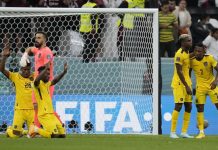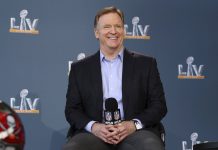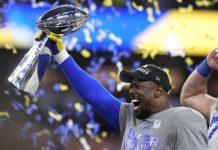By Luis Arellano
For years now, many Americans have expressed little interest in the Muslim world. At the very least, Islam was a challenge to be kept beyond our borders. Others advocated outright intervention in the Muslim world. Years later, while the immediate threat has mostly receded, nevertheless those perspective linger. But just as we as a country are in many respects exceptional, confounding assumptions about what it means to be free, democratic, and developed, I’d argue the Muslim world is exceptional too.
We must reconsider what we think of the Muslim world—and rethink how we might find new allies and partners for some of the cultural and social questions that preoccupy us.
Right now, a new vision of the Muslim world is unfolding in Bali. I’ll tell you about that in a moment. But first why that matters: In just days, Americans will vote in one of the most consequential elections of our lifetimes. Floridians have a special stake in this contest: Many name Governor Ron DeSantis, as a potential Republican candidate for President. Though there’s no clear indication yet, it’s possible the Governor may even challenge former President Trump for the GOP’s nomination.
This election is that important because we are deciding who we want to be.
And who we are is inseparable from how we see the world. As a source of values? As a place to pursue new opportunities? As threats to be fought? As partnerships waiting to unfold? One of the most interesting features of this election must be how it’s scrambled a lot of calculations many analysts long depended on. For example, that voters of color would be exclusively Democratic, or that voters of color would run away from whatever the left branded as racist. Instead it seems Republicans are assembling an increasingly multiracial coalition.
I wonder how that’s going to change America’s relationship to the world.
Our country was founded in opposition to Europe. We inherited a lot from the cultures of Britain, France, and other Western nations, but we also defined ourselves against certain assumptions, traditions, and practices. We’ve had an ambivalent relationship with the wider world ever since. And certainly we could afford to: We had a continent to build, and two oceans to insulate us. After World War II—and learning the lessons from World War I—we became much more actively engaged with the world, and especially the West.
But this did not suppress major differences; for example, while Europe secularized much more quickly, we seemed immune to such transformations, at least until more recently. Some on the left aspire to turn us into Scandinavian social democracies. Some on the right seek to retreat from the world. Plenty of us agree that we must push back against Russia. A lot of us seem inclined to contain and combat China. Though it’s impossible to insulate ourselves from global affairs, nevertheless the debate is valuable and should include broad perspectives.
In that spirit, let me interject an unusual perspective here.
For years, some observers of the Muslim world presented Islam as a kindred faith.
That as fellow descendants of Abraham—spiritually and theologically, that is—Muslims actually had a lot more in common with the West (or at least America) than we presumed. I know many of my readers may find this hard to swallow, but recent events in Bali suggest there is more truth to that than we assume. At the G20’s annual gathering on that Indonesian island right now (next year will be in India, and the year after in Brazil), two prominent Muslim organizations have partnered to support a vision of Islam many Americans will find surprising.
The first is Nahdlatul Ulama, a mainstream and traditional Indonesian Muslim organization led by Chairman Yahya Cholil Staquf. With millions of members, the NU has supported Indonesian secularism for decades, and encouraged its recent successful transition to democracy. Based in the world’s largest Muslim country, the NU is a significant presence in Islamic conversations globally. Why do they matter? Because this year’s G20 features its first-ever Religion Forum, or R20, a convening of diverse religious leaders from G20 countries.
Gathered to introduce religious perspectives on religion into the mainstream of global politics.
The NU was a major force in driving Muslim participation in the R20—in dialogue with the Muslim World League, the Islamic world’s largest non-governmental organization. Headed by an esteemed Saudi Arabian scholar, Dr. Abdul Karim Al-Issa, the Muslim World League has boldly championed interfaith dialogue, engagement across differences, pluralism, and tolerance. Dr. Al-Issa has even toured American Christian congregations, visited Auschwitz, and invited Hindu and Buddhist leaders to Saudi Arabia.
That transformation is stunning. Not only does the Muslim World League count hundreds of scholars in its network across dozens of countries, but at the R20 the Muslim World League has proclaimed that faith leaders must work with secular leaders across the Group of 20 to contribute spiritual and ethical consciousness to global problems. He has further called for the creation of a fund to assist victims of war regardless of faith—including in Ukraine. To see major Muslim voices from the world’s most influential Muslim countries on this path is exciting.
It means space is opening for thoughtful conversations about religion, tradition, and more open societies in the Muslim world and Islam globally. For Americans who are keen to pursue economic development and global engagement without sacrificing conservative values, our longstanding traditions, and our commitments to our faith, this suggests that we have been too quick to judge the world beyond our borders. What happens in Bali shouldn’t be overlooked by Americans Bali. Let’s hope our leaders see these opportunities for what they could be.














